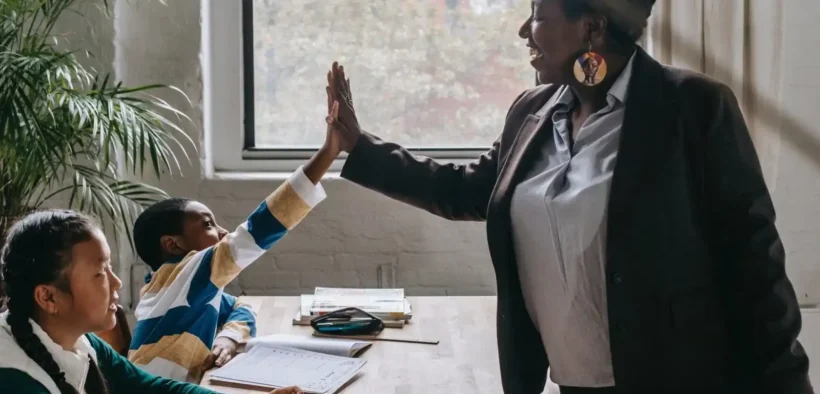Black Educators Say Students Will Bear the Brunt if Trump Eliminates Education Department
Share

As former President Donald Trump doubles down on his vow to dismantle the U.S. Department of Education if re-elected, concern is growing, particularly among educators in states like Mississippi, where historic racial inequities and chronic underfunding already strain public education
. For many Black teachers, the threat isn’t just political, it’s personal.
In interviews with the Pulitzer Center, Black educators in Mississippi shared how Trump’s rhetoric has intensified the emotional toll of teaching in a system they say often marginalizes both students and teachers of color.
“I had the best classroom data and great relationships with my students,” said Erica Jones, executive director of the Mississippi Association of Educators. “Yet a Black parent still asked for their child to be moved to a white teacher’s classroom. It made me question—was it just my skin color?”
Jones, a veteran educator, described the dual responsibility Black teachers often feel in predominantly Black communities: to educate, but also to uplift students navigating systems not built with them in mind.
“Black teachers understand their job doesn’t stop when the bell rings,” she said. “We carry the weight of uplifting Black children in a system built to push them down.”
That burden, research shows, is backed by data. Studies have long documented how the school-to-prison pipeline disproportionately impacts Black students, with higher rates of disciplinary action and law enforcement contact.
A study in the Economics of Education Review also found that Black teachers tend to have higher expectations for Black students, suggesting that who teaches matters just as much as how they teach.
“No Room to Teach, Just Surveillance and Stress”
For some teachers, the challenges go beyond race—they’re structural and systemic.
A 35-year-old teacher from the Mississippi Delta, who asked to remain anonymous for fear of retaliation, described an oppressive work environment driven by micromanagement and distrust.
“She controlled everything—schedules, lesson plans, even how long kids could go to the restroom,” the teacher said of a former school administrator. “There was no room to teach. Just surveillance and stress.”
After repeated mental health struggles and burnout, the teacher—along with several colleagues—left the school altogether.
The Threat of Losing Federal Oversight
Critics argue that Trump’s push to eliminate the Department of Education would strip away the few protections currently holding states like Mississippi accountable.
“There’s just no telling what states like ours would do if given total control,” said Grace Breazeale, director of research and K-12 policy at Mississippi First, a public policy nonprofit. “Federal oversight is often the only thing holding Mississippi accountable for providing even the bare minimum.”
She added, “Mississippi’s deep history of racism still permeates its policies. Raising teacher salaries and fully funding education initiatives would be valuable first steps.”
Indeed, the state remains among the lowest in national education rankings, often grappling with under-resourced schools, low teacher retention, and systemic disparities along racial and economic lines.
Students with Special Needs Also at Risk
In May, ProPublica reported that the Department of Education, already under strain, has closed multiple civil rights offices and dramatically cut staffing, making it nearly impossible to investigate discrimination cases in schools.
Meanwhile, the department’s own civil rights office has been refocusing on dismantling diversity initiatives under the guise of protecting against “reverse discrimination.”
This rollback has implications beyond race. It’s also impacting students with disabilities and special needs—those who rely on Individualized Education Programs (IEPs), free meals, and Title I support.
“I wouldn’t have made it through school without the Department of Education,” said Montrell Allen, a first-grade teacher in Natchez. “People think this won’t affect them, but it will, especially kids with IEPs, free lunch programs, and Title I funding.
We’re already struggling to stay afloat, and now they’re threatening to pull the lifeboat away.”


















